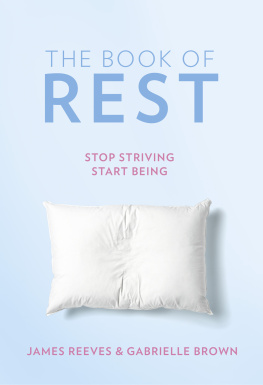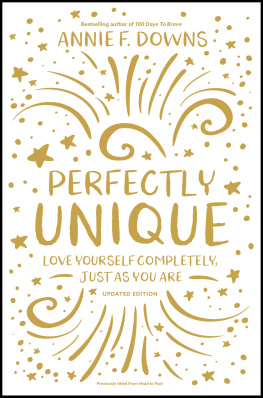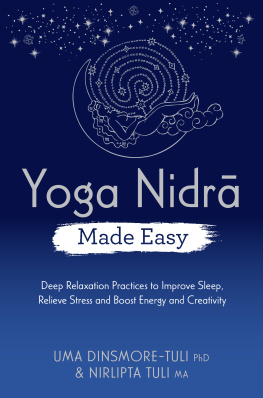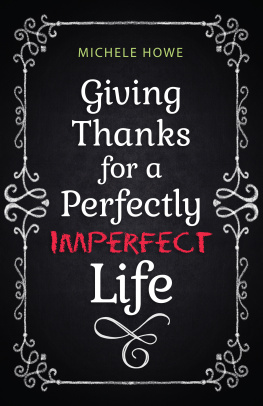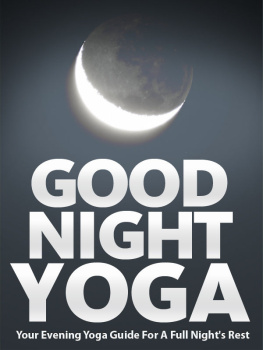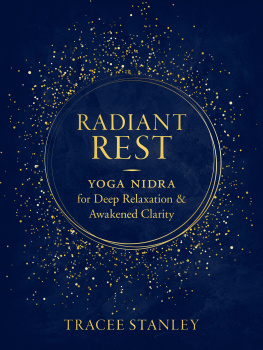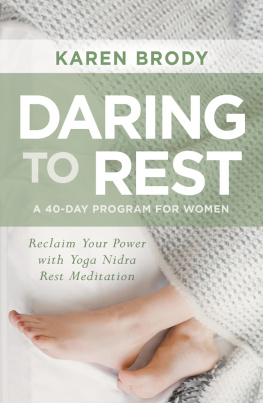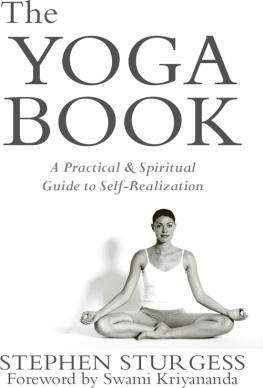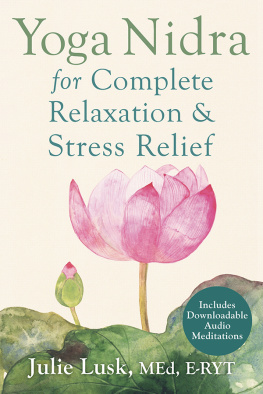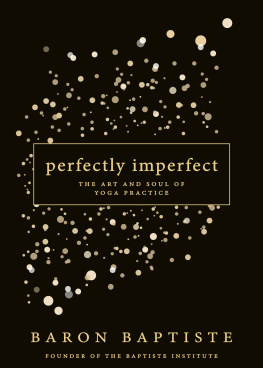JAMES REEVES and GABRIELLE BROWN founded the yoga and meditation school Restful Being Ltd in 2014, specialising in yoga nidra, a transformative state of deep rest. James has been a practising yoga teacher since 2005 after completing his first teacher training in Kerala, India and is now recognised as a world-leading yoga nidra authority, delivering classes, workshops, retreats and teacher-training courses globally and online. Gabrielle is primarily involved in managing Restful Beings content, from course materials to blog posts, having over two decades of experience in corporate communications and publishing. She has been a dedicated yoga practitioner since 2004 and qualified to teach in 2013 after studying classical yoga in India and yoga nidra in California, USA.
Australia
HarperCollins Publishers (Australia) Pty. Ltd.
Level 13, 201 Elizabeth Street
Sydney, NSW 2000, Australia
http://www.harpercollins.com.au
Canada
HarperCollins Canada
Bay Adelaide Centre, East Tower
22 Adelaide Street West, 41st Floor
Toronto, ON, M5H 4E3, Canada
http://www.harpercollins.ca
India
HarperCollins India
A 75, Sector 57
Noida, Uttar Pradesh 201 301, India
http://www.harpercollins.co.in
New Zealand
HarperCollins Publishers (New Zealand) Limited
P.O. Box 1
Auckland, New Zealand
http://www.harpercollins.co.nz
United Kingdom
HarperCollins Publishers Ltd.
1 London Bridge Street
London SE1 9GF
http://www.harpercollins.co.uk
United States
HarperCollins Publishers Inc.
195 Broadway
New York, NY 10007
http://www.harpercollins.com
Rest is a naturally occurring phenomenon. It is the thing that happens between, behind and around all our experience. It is the space that appears, however fleetingly, between all of the activities, all of the stuff and all of the thoughts, and while we might not think it has any value, it is the glue that binds everything together.
By stopping and doing nothing for a while you can recover the ability to recognise this spaciousness and begin to feel spacious about life again.
Throughout this book we will be exploring the you that exists beyond your thinking mind the you that is part of the space between everything else. We will look at how rest is both a means to experience this aspect of your existence and also the results of being reminded of it.
In this and the following chapters we will consider the relationship between our feelings, experiences, rest, restfulness and this concept of being over doing being in the moment, being aware, being mindful, being human (all the beings).
Along the way, we will come across many apparent contradictions and paradoxes... and then they will dissolve... so long as you dont try to figure them out.
We will go round in circles, and we will see that this was all part of the journey.
Youve probably heard the expression, at one with the everything or at one with the universe. Its a phrase that seeks to capture that feeling of there being nothing in our experience that we wish to change. In these moments, we feel held, connected, resolved, at ease, open. There is no sense of conflict or resistance.
But in these moments, we are not actually thinking, I am the universe and the universe is me, because, most likely, we are not thinking at all.
Crucially, these moments dont always come the minute you buy that car youve had your heart set on or get that promotion or resolve that conflict with your cousin. They often come out of nowhere.
Which means it is possible this feeling of being at one (of everything being completely OK), exists regardless of what we think, do and have. It is possible that at the essence of all our experience, is a pervading sense of everything being just as it should be.
There are countless words and expressions that point towards the state and the thing that lies beyond the mind and beyond experience. You might use consciousness or awareness. You may have heard of nondualism and the non-dual state simply meaning not divided (not two). Or if youre used to a more new age vibe then theres source, soul or white light. Perhaps youve even come across the police-drama-sounding witness state? And when describing what it feels like to be in this state, we might use words such as peaceful, blissful, or describe a sense of pervading stillness or feeling of balance and harmony.
Whether we use any or all of these terms or we make up our own, we can never accurately describe any of it because it is necessarily elusive. The state is a no-state and the feeling of being in it is nothing but pure being.
In this book, our preference is for essence or essential self, and when we talk about connecting with it, we like to say we are being, but all these descriptions are merely our way of pointing to something that you ultimately need to experience yourself in all its word-less, thought-less glory. It might not have a name, but its right there, in front of your nose (well, actually, its behind your nose, and in front of it, too, and its none and both of those things, its whats aware of your nose... etc.).
When we rest, when we do nothing, we give ourselves the chance to go beyond our mind and beyond our experience. Ultimately, in moments of not doing and of experiencing only our awareness, we are in a state of one-ness. We dont feel the separateness of our bodies, the conflicts of our emotions, the differences between ourselves and others.
It is a difficult concept to get our heads around, since our minds love to objectify, to have a thing to cling on to. Were all very uncomfortable with not knowing. We want to make this thing that cannot be named a thing. Our head really doesnt like what this thing implies: that it cannot control our individual experience of life.
You might already have your own understanding of consciousness, and have your own words for it, and perhaps even a different system for thinking about it. If you are attached to how you already think about this quality we are exploring, perhaps you could consider letting go of your current beliefs, or at least hold them a little less tightly.
We are not any one thing.
Rest and theory
There is a history to the teachings and the terminology we are sharing with you (and then asking you to unlearn), but more importantly there is a mystery. Some traditions of yoga consider consciousness as being personal or separate from life itself, while other teachings called this theory into question and after further exploration determined it to be a quality that seems all pervasive. The yogis experiences of awareness brought the insight that it was utterly impersonal, though entirely inclusive; that what we are at our most essential is actually universal, all pervasive and utterly unified.
If you enjoy particle physics (and whats not to love?!) then youll know that science is forever changing and shifting its theory on what, ultimately, were all made from (and by we, we mean us, the planet, the solar system and beyond everything ever). Some theories are moving closer towards determining that we are all one and the same thing, flashing in and out of existence, in a space that is bound neither by space nor time. This is interesting in relation to what were trying to point you towards in this book, but its still just theory.
We cannot write about rest without discussing its apparent counteragent, energy. In the traditions from which many of our teachings come there are certainly references to energy that do not marry with the scientific observations on the subject. Science defines energy not as a thing but as a measurement of an objects capacity for doing work, whereas new age and esoteric communities talk about energy as though it were a separate entity a life force or qi capable of moving through time and space and affecting objects as it does, perhaps charging them up positively, or healing them somehow.
Next page
